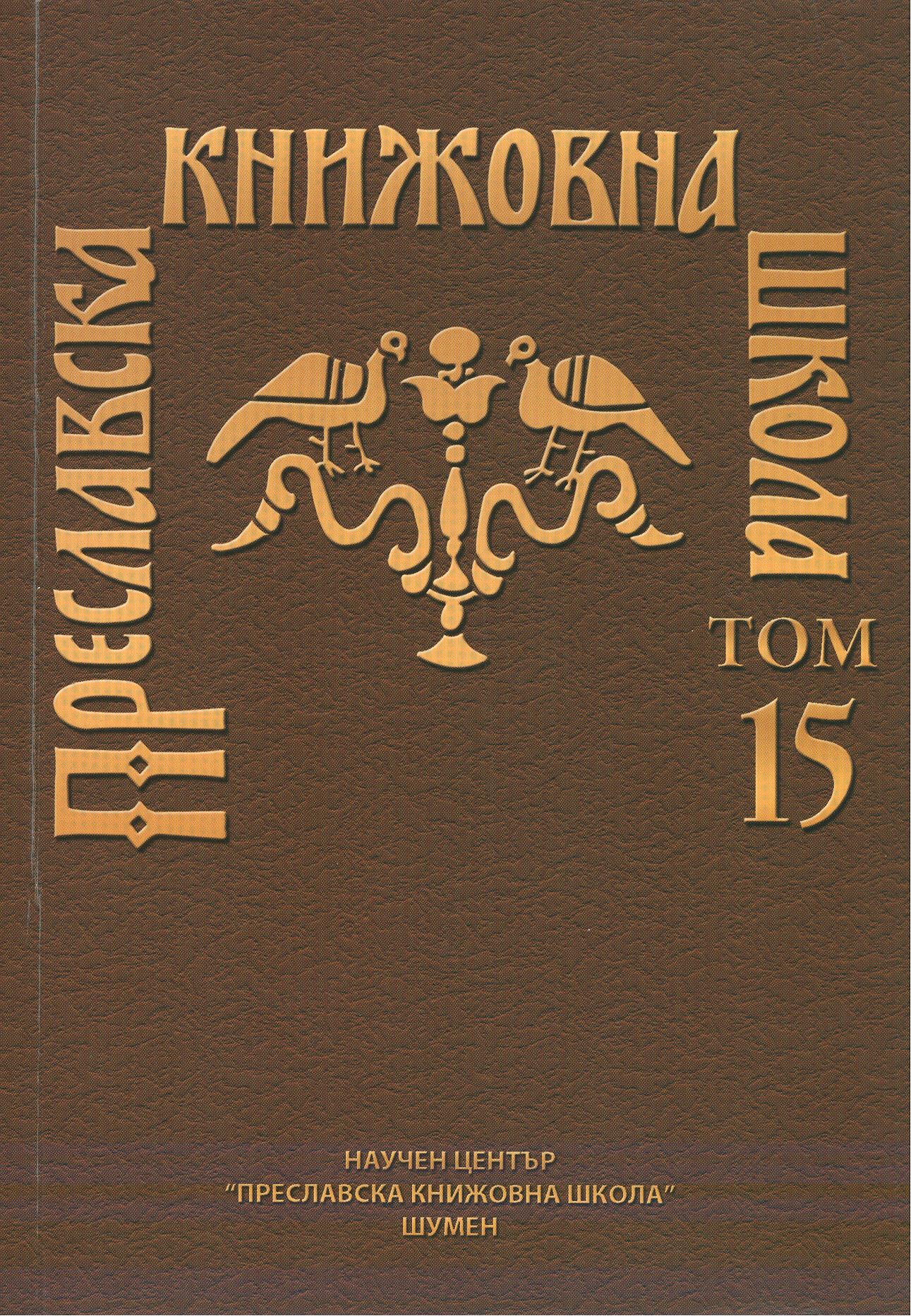СЪЩЕСТВИТЕЛНИ НА -ЬСТВО В СТАРОБЪЛГАРСКИЯ ПРЕВОД НА ОГЛАСИТЕЛНИТЕ СЛОВА НА СВЕТИ КИРИЛ ЙЕРУСАЛИМСКИ (ГИМ, СИН. 478)
NOUNS WITH THE SUFFIX -ЬСТВО IN THE OLD BULGARIAN TRANSLATION OF ST. CYRIL OF JERUSALEM’S CATHECHISM (GIM, Syn. 478)
Author(s): Nikolay NikolovSubject(s): Language studies, Language and Literature Studies, Eastern Slavic Languages
Published by: Шуменски университет »Епископ Константин Преславски«
Keywords: St. Cyril of Jerusalem’s catechism lectures; Old Bulgarian language;
Summary/Abstract: The article examines nouns (simplex and composite) with –ьство suffix in Old Bulgarian translation of St. Cyril of Jerusalem’s catechism lectures (GIM, Syn. 478). The analysis of these nouns gives the opportunity to explore formative model and lexical layer nouns presenting features that characterize the construction of normativity in the Old Bulgarian standard language. The aim of the analysis is to reach conclusions of the translation attributing to the linguistic peculiarities of certain Old Bulgarian literature school and a particular Old Bulgarian writer’s style. Multiplicity of substantives Nomina abstracta in -ьство (104) in comparison to substantives in -ьствиѥ (14) leads to the conclusion that both the use of lexemes as dictionary units and in terms of the construction of composite substrates in established formation models in the Old Bulgarian language, the scholar’s idiolect reflects normativity characteristic of the Preslav school scholars (see. these 58 substantives, unregistered in classic Old Bulgarian manuscripts). The suffix -ьство functions in the system of conceptual and derivation relations as a reprezentant of a certain socio-cultural view of life, as an eksplikator of scientific and theological (and civilization) concepts. The free creation of new Nomina actionis et resultativa, Nomina collectiva and Nomina essendi confirms the already stated opinion that in the translation of catechism lectures occurs bold creation of new lexemes, display of the sense, simplicity and clarity of expression, free formation of the necessary words or the use of ready words, suitable for the given thought which largely allows attributing the translation style in the Syn. 478 to Konstantin of Preslav’s style.
Journal: Преславска книжовна школа
- Issue Year: 2015
- Issue No: 15
- Page Range: 23-47
- Page Count: 25
- Language: Bulgarian

